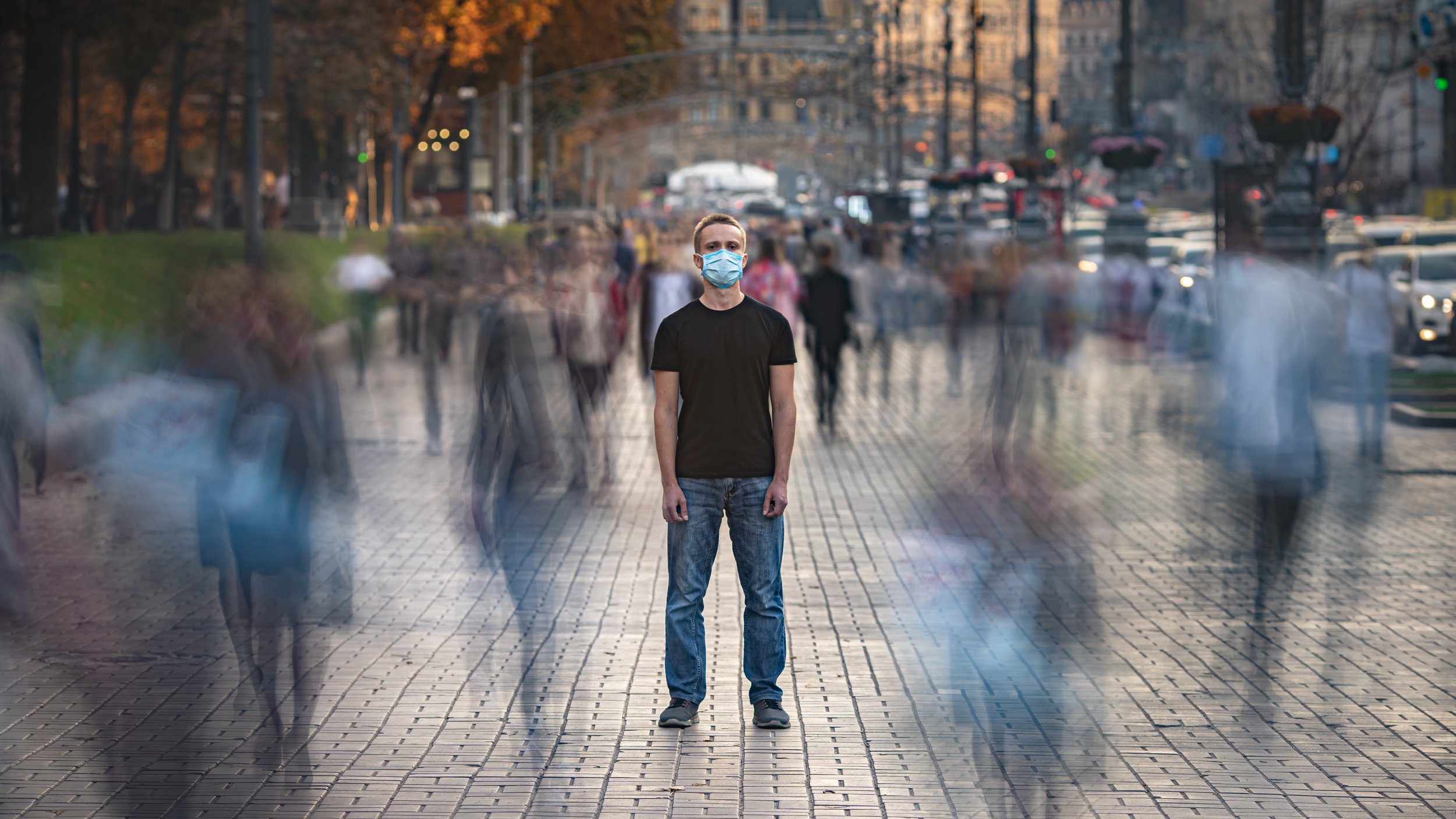Coping with COVID-19
Without a doubt, these are troubling times for us all. Last month with the introduction of COVID-19 into our lives, we’ve had to make significant, life-altering adjustments to how we do everything. Not being able to share moments with loved ones, closing the doors to businesses and social events, the headache of transitioning to online learning and work environments, and for many, the terror and heartache of bearing witness to our friends and families becoming ill and passing away, these are sources contributing to our ever-growing concerns and fears for the future to come. This is hard. Change is hard.
Our minds and our bodies are programmed to adjust and adapt to change over time. How long it takes to adjust to change is relative to all kinds of factors. You want to look at how much this change impacts your daily life; if this was a voluntary change, something unwelcomed or even traumatic, how much support you receive from your loved ones throughout, and your ability to cope with stress regularly.
It's helpful to recognize that in our own unique way, we all make efforts to cope with change. We might also be having a more difficult time in the process, where prolonged or pervasive stress ends up promoting things like anxiety, depression, substance use, and burn out. This is what happens when we can’t balance the scales for ourselves between healthy stress management and meeting expectations. The number one factor that I recognize in my clients struggling to navigate through change is the lack of self-care being applied to address the level of stress they experience.
Imagine you are a fountain, and the water that is being re-funneled replenishes less and less over time, all while you continue to keep spewing water out. At some point, there will be nothing left to be re-funneled, and the fountain will dry up because there's nothing else to pour out. When we continue to give and put forth effort, with not enough in emotional, psychological, or physical return to ourselves, there is nothing left to offer others. We become exhausted. In therapy, we often use the "You cannot pour from an empty cup" analogy, and it couldn't be more meaningful during this pandemic. We have an active, severely disruptive level of stress and change engulfing our daily lives right now. All of that stress cakes on. And a friendly reminder that before this pandemic started, you had stress placed on the table already. Wouldn't it make sense to counterbalance it with enough healthy options for ourselves?
Self-care can be defined as the day-to-day efforts of treating ourselves well. Those efforts might entail a nap, reaching out to a friend, enjoying a hot bubble bath, setting a boundary, restructuring part of your schedule, reading that book you keep putting off, asking for a hug, and taking a moment to cry. Self-care is telling yourself that you are doing your best with what you've got.
Understand that this idea of self-replenishment is an ongoing fulfillment. This is not something we do once, wave a magic wand, poof, all is well. We have to be active in our choices; it is a lifestyle management. Each day we are assessing where we are mentally, physically, sexually, emotionally, with varying battery percentages each day, and making the appropriate adjustments. Check-in. You're already doing this almost unconsciously each time your stomach grumbles, when urges or cravings creep in, or when you stop to think through situations before you respond to them. In doing so, you are addressing your needs that have to be met.
So what does a check-in look like? I like to look at it as pressing pause for a moment. Find a time in your day, preferably when you have a break or a transition, to ask yourself a couple of questions:
How am I feeling right now?
What will help me feel better/maintain my mood?
How will I get that need met?
Be reasonable and realistic with your efforts. Be honest with your self-evaluation of where you are. Some days we need less, and some days we need more. It’s okay to take a pause to focus on your needs. We are in a time of ongoing stress and uncertainty as we cope with all the changes COVID-19 warrants. How you take care of yourself during this time makes all the difference.

